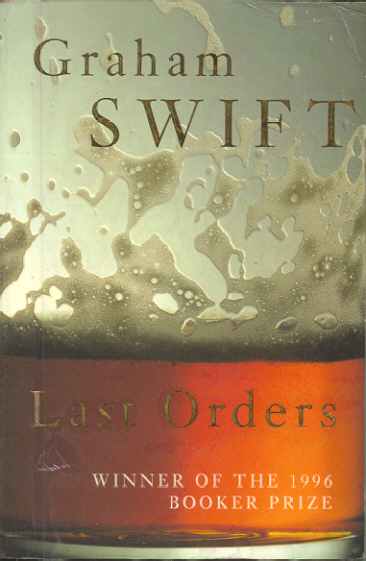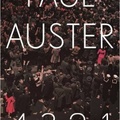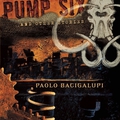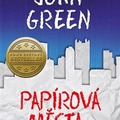Graham Swift: Last Orders

Umberto Eco mentions in his notes to The Name of the Rose that the first 100 pages of the novel is deliberately difficult and hard to approach. He says that he uses these pages to test his readers, so that only those will be able to reach the monastery – where all the excitement begins – who are insistent and curious enough. He builds a mountain of his text which needs to be climbed in the same way as his characters need to climb the real mountain on top of which the monastery lies. Umberto Eco and Graham Swift do not have too much in common, still, Swift’s novel reminded me of this Eco-style mountain-climbing.
In Last Orders, Graham Swift doesn’t deal with intriguing murder mysteries. He deals with people, and people are more mysterious and harder to decipher than the most extraordinary murder case – therefore I wasn’t much disconcerted when I realized that I had to read about a hundred pages of this (300-page) novel before I got some idea about the identity of the characters Swift writes about. Of course I don’t know anything for sure, not even after finishing the book, but when it comes to „real” people (like the ones in this novel) this hardly comes as a surprise.
Last Orders is the story of a single day when four old friends start off on a journey, in order to execute the last will of their friend, the recently deceased butcher, Jack Dodds, and throw his ashes into the sea. The four friends are Vic, an undertaker; Ray, an office clerk who’s also a horse-racing maniac; Lenny, a guy who wanted to become a professional boxer but ended up being a greengrocer; and Vincey, a used-car dealer, Jack’s adopted son. These four men, and Jack’s wife, Amy take turns telling the story. And while the men are on their way from London to Margate (the place designated by Jack for the scattering of his ashes), they all get into a nostalgic mood, and through their memories we slowly learn how they are related to each other and to their deceased friend, and we also get to know the most important details of the lives they have lived.
Of course I could mention dozens of nostalgic books, and hundreds of life-stories told in flashbacks – but Last Orders is far above the average nostalgic-flashback novel. One reason for this is that it’s amazingly truthful and it lacks any kind of melodrama or histrionics: the common lives of these common characters don’t appear more beautiful and exciting in hindsight, but at the same time, Swift doesn’t shock or crush you with unimaginably horrible tragedies, either. In this novel both the good and the bad are bearable, common and perhaps inevitable: illnesses; faithful and unfaithful marriages; some nights out with friends; some success in business or a lucky bet on a race-horse; love, family dramas and compromises – all of these are only „big” for the one who actually lives through them. And Graham Swift writes about these themes in such a way that he simultaneously shows their ordinariness and their most extraordinary uniqueness – since these are the most important, most special events in someone’s (anyone’s) life.
Besides this, the language use and humor of the novel are also remarkable. It’s a real pleasure to read the informal, not too sophisticated, but very expressive and emotional words of the characters. Swift sticks to the common in his language as well: his average characters don’t speak BBC English, but they don’t talk like the heroes of a slum novel either. They simply talk as an average Cockney speaker would, and I happen to like this kind of linguistic authenticity. And as regards the humor: Swift’s humor is beautifully under-toned, absurd, slightly bizarre and slightly dark, but basically it’s a sympathetic and empathic kind of humor. The novel’s humor (and its plot) reminds me a bit of William Faulkner’s As I Lay Dying, and of Beryl Bainbridge’s The Bottle Factory Outing.
Last Orders is a good novel. It’s beautiful, uplifting, and the end is truly cathartic (and mind you, I don’t tend to use this word very often).
In Last Orders, Graham Swift doesn’t deal with intriguing murder mysteries. He deals with people, and people are more mysterious and harder to decipher than the most extraordinary murder case – therefore I wasn’t much disconcerted when I realized that I had to read about a hundred pages of this (300-page) novel before I got some idea about the identity of the characters Swift writes about. Of course I don’t know anything for sure, not even after finishing the book, but when it comes to „real” people (like the ones in this novel) this hardly comes as a surprise.
Last Orders is the story of a single day when four old friends start off on a journey, in order to execute the last will of their friend, the recently deceased butcher, Jack Dodds, and throw his ashes into the sea. The four friends are Vic, an undertaker; Ray, an office clerk who’s also a horse-racing maniac; Lenny, a guy who wanted to become a professional boxer but ended up being a greengrocer; and Vincey, a used-car dealer, Jack’s adopted son. These four men, and Jack’s wife, Amy take turns telling the story. And while the men are on their way from London to Margate (the place designated by Jack for the scattering of his ashes), they all get into a nostalgic mood, and through their memories we slowly learn how they are related to each other and to their deceased friend, and we also get to know the most important details of the lives they have lived.
Of course I could mention dozens of nostalgic books, and hundreds of life-stories told in flashbacks – but Last Orders is far above the average nostalgic-flashback novel. One reason for this is that it’s amazingly truthful and it lacks any kind of melodrama or histrionics: the common lives of these common characters don’t appear more beautiful and exciting in hindsight, but at the same time, Swift doesn’t shock or crush you with unimaginably horrible tragedies, either. In this novel both the good and the bad are bearable, common and perhaps inevitable: illnesses; faithful and unfaithful marriages; some nights out with friends; some success in business or a lucky bet on a race-horse; love, family dramas and compromises – all of these are only „big” for the one who actually lives through them. And Graham Swift writes about these themes in such a way that he simultaneously shows their ordinariness and their most extraordinary uniqueness – since these are the most important, most special events in someone’s (anyone’s) life.
Besides this, the language use and humor of the novel are also remarkable. It’s a real pleasure to read the informal, not too sophisticated, but very expressive and emotional words of the characters. Swift sticks to the common in his language as well: his average characters don’t speak BBC English, but they don’t talk like the heroes of a slum novel either. They simply talk as an average Cockney speaker would, and I happen to like this kind of linguistic authenticity. And as regards the humor: Swift’s humor is beautifully under-toned, absurd, slightly bizarre and slightly dark, but basically it’s a sympathetic and empathic kind of humor. The novel’s humor (and its plot) reminds me a bit of William Faulkner’s As I Lay Dying, and of Beryl Bainbridge’s The Bottle Factory Outing.
Last Orders is a good novel. It’s beautiful, uplifting, and the end is truly cathartic (and mind you, I don’t tend to use this word very often).





